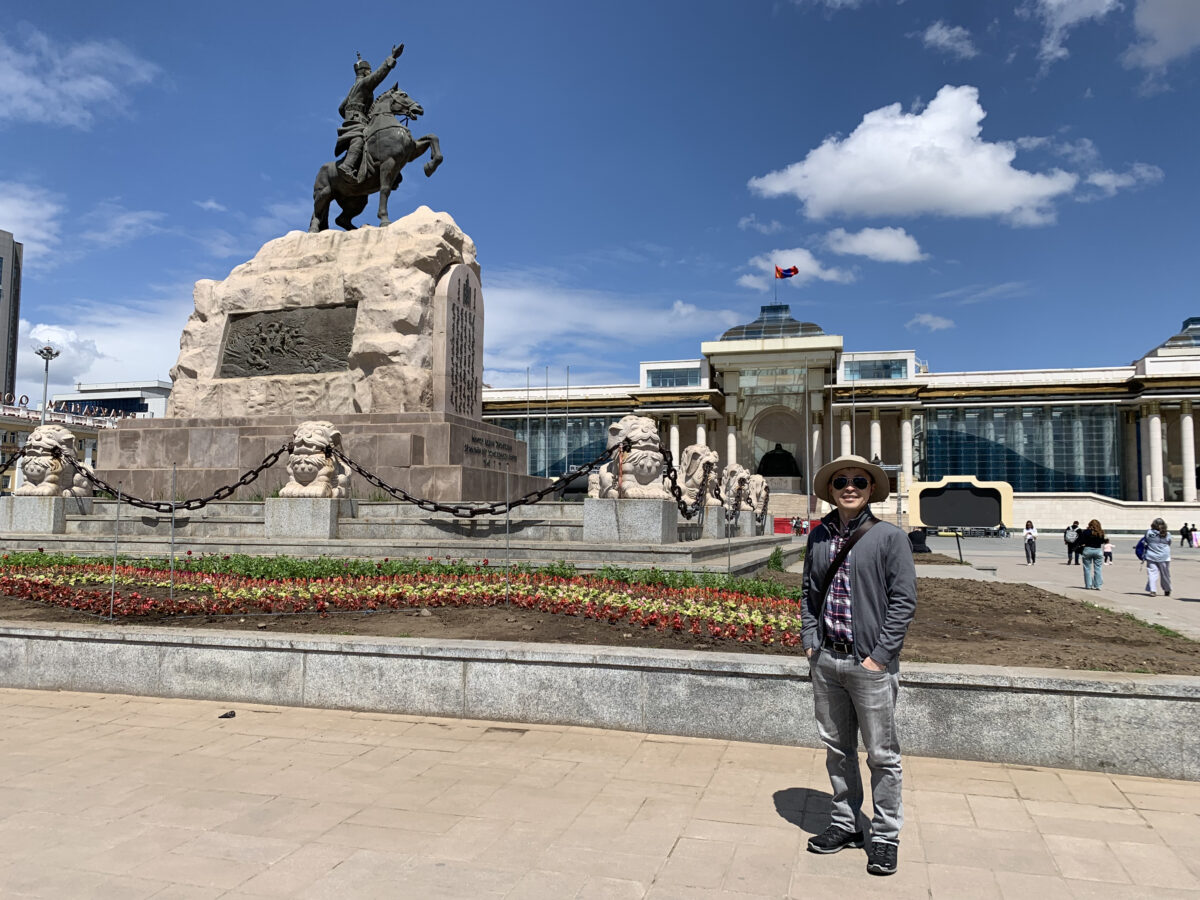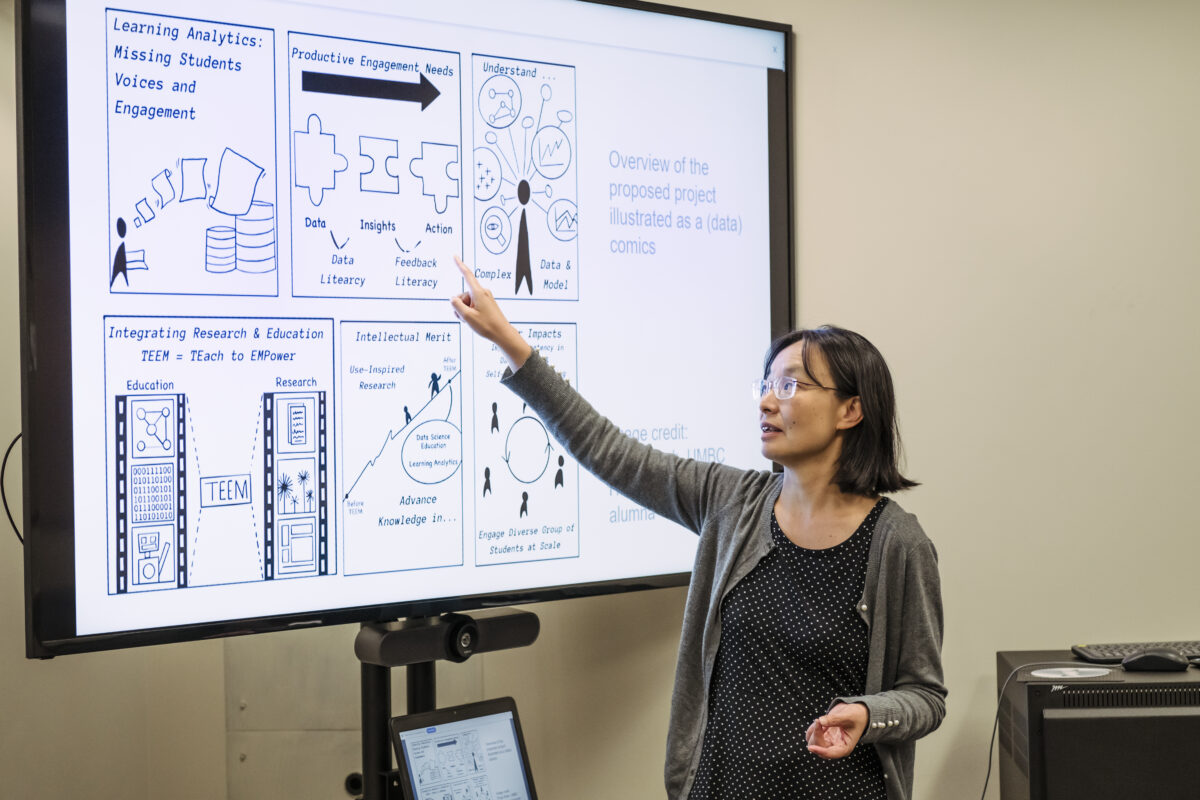Jianwu Wang, assistant professor of information systems, is the most recent UMBC faculty member to receive a prestigious CAREER Award from the National Science Foundation (NSF). Wang’s NSF grant totals more than $500,000 over five years. It will support his work to develop more efficient and reproducible causality analytics for use in climate science.
Cause and effect is a fundamental research question in many disciplines and there are some unique challenges in discovering cause-effect relationships from climate data. Wang explains that Earth changes so rapidly that climate scientists studying it must continuously capture a huge volume of data. For the planet’s environment, each point in time yields distinct information, and there is no way to retest the climate to confirm causal relationships.
The rapidly available climate data can be challenging for researchers to keep up with, explains Wang. “Computation and data techniques have become the third and fourth paradigm for science in many disciplines,” he says. “The novel computational and data science techniques to be studied through this award could help climate or Earth scientists to quickly find interesting patterns from data and use data to conduct hypothesis testing.”
Using data to study the Earth
Wang is exploring new ways of applying artificial intelligence and data science to studying the Earth, including its climate system. He has collaborated with faculty across UMBC, including in the physics department and the Joint Center for Earth Systems Technology, where he is an affiliated faculty member. These connections have helped him better understand the needs of climate scientists.
Recent advances in artificial intelligence and data science give hope to studying Earth from a data-driven perspective. Yet climate scientists are challenged by the need to process terabytes of data collected about environmental systems, Wang has learned. The data’s volume and complexity can make it very difficult to examine, which could mean missed opportunities for insights.
Wang hopes that his work will help climate scientists better understand the data they have already collected, and find better ways to test their causality related hypotheses. The end goal of the research is to develop a climate causality analytics platform that is scalable and reproducible.
Research opportunities for students
As he plans next steps, Wang is particularly looking forward to providing students with research opportunities. He will connect with graduate and undergraduate students through UMBC’s Center for Women in Technology, as well as local high school students through UMBC’s Shriver Center.
The range of perspectives these students bring will help Wang address the challenges posed by climate data, ultimately making it more useful and accessible.. “We expect our research will help climate scientists efficiently discover causal relationships from complex climate datasets and easily share their findings with others,” he explains.
“These findings could help us better understand how Earth’s climate system works,” Wang says. “Eventually, they could help us better predict and adapt to many specific climate-related events, such as extreme heatwaves, droughts and floods.”
Banner image: Jianwu Wang. Photo courtesy of Wang.



